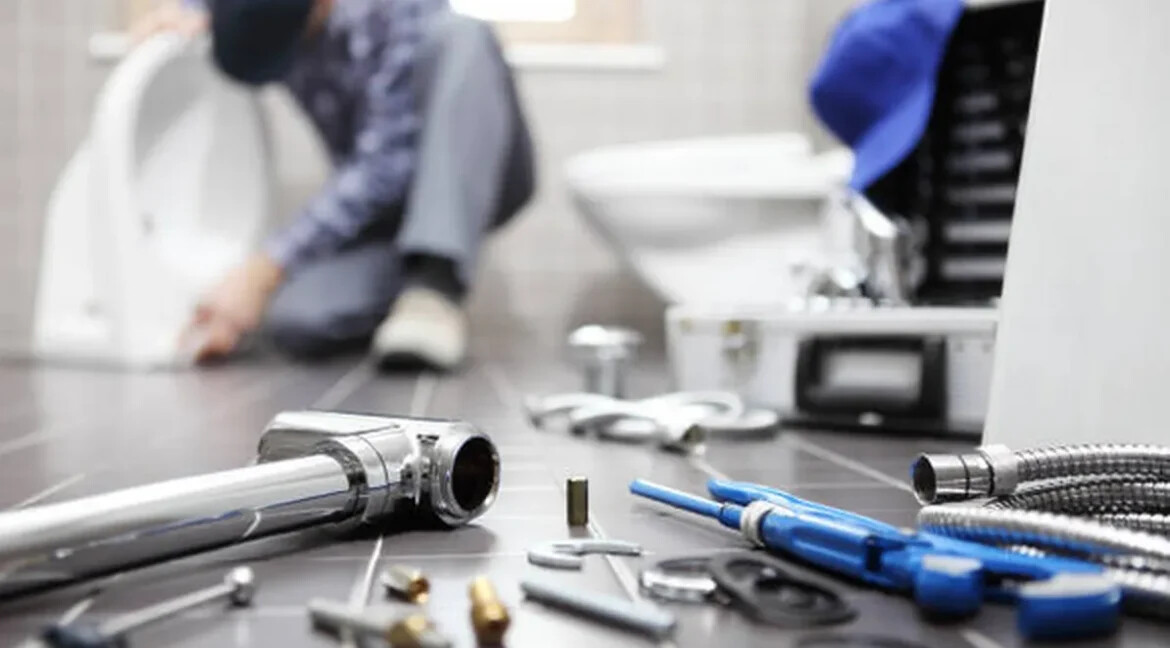How to Protect Your Seafront Property: Plumbing Maintenance for Coastal Homes
Owning a seafront property is a dream come true, imagine waking up to the sound of the waves and endless ocean views right outside your window. But as beautiful as coastal living is, it also comes with its own set of unique challenges, especially when it comes to maintaining your home’s plumbing.
The salty sea air and high humidity can take a real toll on your pipes and fixtures, often causing corrosion and costly damage if left unchecked. That’s why regular plumbing maintenance isn’t just a good idea, it’s essential for protecting your coastal home.
In this blog, we’ll walk you through practical, easy-to-follow plumbing tips designed specifically for seafront properties. By the end, you’ll have a clear game plan to help safeguard your home and keep things flowing smoothly for years to come.
Understanding Coastal Plumbing: What Makes It Different?
When it comes to plumbing in coastal homes, the environment plays a much bigger role than you might expect. Unlike properties further inland, seafront homes are constantly exposed to salt-laden air, high moisture levels, and strong winds, all of which can accelerate wear and tear on plumbing systems.
It helps to understand a few key terms. Corrosion refers to the gradual breakdown of materials, especially metals, due to chemical reactions, saltwater and salty air speed this process up significantly. Galvanic corrosion is another common issue near the coast, where different metals in plumbing systems react with each other in the presence of salt, causing rapid deterioration.
In recent years, homeowners and builders in coastal areas have become more aware of these challenges. There’s now a growing trend toward using corrosion-resistant materials like PVC, PEX, and stainless steel in seafront plumbing systems. Additionally, more people are investing in quality plumbing supplies that are built to withstand harsh coastal conditions and prevent small issues from turning into expensive repairs.
Common Plumbing Challenges in Coastal Homes and How to Manage Them
Living by the sea means your plumbing faces unique pressures that homeowners further inland might never encounter. Understanding these challenges is key to keeping your coastal property in top shape.
1. Corrosion of Pipes and Fixtures
The salty air near the ocean speeds up the corrosion of metal pipes, taps, and fixtures. Over time, this can lead to leaks, reduced water pressure, and even pipe failure. To combat this, many homeowners are switching to corrosion-resistant materials like PVC or stainless steel, which hold up much better in a coastal environment.
2. Salt Build-Up and Blockages
Salt deposits can gradually build up inside your pipes, leading to blockages or restricted water flow. This can put extra strain on your plumbing system. Regular flushing of your pipes and trusted plumbing services can help prevent this issue and keep your system working efficiently.
3. High Humidity and Moisture Exposure
Coastal homes naturally face higher humidity levels, which can cause condensation around exposed pipes and lead to mould growth or water damage in hidden areas. Insulating pipes and ensuring good ventilation in wet areas like bathrooms can help minimise this risk.
4. Water Quality Issues
In some coastal regions, water may have a higher mineral or salt content, which can accelerate scale build-up inside plumbing systems and appliances. Installing water softeners or filtration systems can help protect your pipes and improve overall water quality.
By understanding these key risks and addressing them early, you can protect your home’s plumbing system from unnecessary damage and costly repairs.
The Benefits of Proactive Plumbing Maintenance for Coastal Homes
Taking a proactive approach to plumbing maintenance isn’t just about preventing problems, it comes with some real, long-term benefits for you and your property.
Increased Property Value and Longevity
Regular maintenance helps preserve the structural integrity of your home, which can significantly boost its resale value. Buyers are often drawn to well-maintained coastal properties that won’t come with hidden plumbing issues.
For example, a coastal homeowner in Sydney who consistently serviced their plumbing reported fewer breakdowns and achieved a higher sale price compared to similar homes with neglected systems. This is also true in areas experiencing fresh growth, like new apartments in Earlwood, where 62 off-the-plan units are now for sale—demonstrating the strong demand for quality, well-maintained properties.
Peace of Mind and Cost Savings
Staying ahead of plumbing issues means fewer emergency callouts and costly repairs down the track. Imagine catching early signs of corrosion before it turns into a burst pipe, it’s a small fix that can save thousands. A family in the Gold Coast who set up annual inspections avoided major water damage when their plumber discovered salt-related pipe wear just in time.
Improved Water Efficiency
Regular checks help identify leaks, blockages, or inefficient systems that waste water, a particularly valuable benefit in areas where water conservation is important. One beachfront café that switched to corrosion-resistant plumbing and installed modern fittings saw their water bills drop significantly within a year.
By investing a little time and effort into maintaining your plumbing, you’re not only protecting your home, you’re also improving your daily comfort, reducing stress, and potentially saving a lot of money in the long run.
Challenges of Coastal Plumbing Maintenance and How to Overcome Them
While plumbing maintenance for coastal homes is essential, it does come with its own set of challenges that homeowners should be prepared for.
Higher Maintenance Costs
One of the biggest drawbacks is that coastal plumbing can be more expensive to maintain. Salt exposure accelerates wear, meaning you may need to replace fixtures or schedule inspections more frequently than you would inland. Some homeowners put off maintenance to save money, but this often leads to much higher costs later on. Planning for regular, smaller expenses can help you avoid overwhelming repair bills in the future.
Limited Material Options
Not all plumbing materials hold up well in coastal environments. A common mistake is using standard fittings that quickly corrode under salty conditions. To avoid this, work with plumbers who are experienced in coastal homes and can recommend corrosion-resistant options like PVC, PEX, or marine-grade stainless steel from the start.
Misunderstanding the Maintenance Timeline
Many people assume that plumbing can go unchecked for years, but this is a risky assumption in seafront homes. It’s a misconception that only visible pipes or fixtures need attention. In reality, hidden pipes, joints, and valves are equally at risk. Setting up a proactive maintenance schedule with annual inspections is the best way to stay ahead of potential issues.
Access to Coastal Plumbing Specialists
Depending on your location, finding plumbers familiar with the unique needs of coastal properties might be challenging. Partnering with local, reputable professionals who understand the environment can make all the difference.
By recognising these challenges and tackling them with the right strategies, you can confidently manage your coastal plumbing and protect your home for the long term.
Practical Plumbing Tips to Protect Your Coastal Home
Now that you understand the unique challenges of coastal plumbing, let’s explore how you can put this knowledge into action and keep your seafront property in top condition.
Schedule Regular Inspections
Arrange for a licensed plumber, preferably one with coastal experience, to inspect your pipes, joints, and fixtures at least once a year. Early detection of corrosion or salt build-up can save you from bigger, more expensive repairs later.
Choose the Right Materials
Opt for corrosion-resistant materials like PVC, PEX piping, or marine-grade stainless steel. These materials are specifically designed to withstand salt, humidity, and moisture, giving your plumbing system a much longer lifespan.
Flush Your Plumbing System
Consider periodically flushing your plumbing with clean, fresh water to help prevent salt build-up inside your pipes. This is particularly helpful in properties that aren’t occupied year-round, as stagnant salty water can be especially damaging.
Invest in Protective Coatings
Applying anti-corrosion coatings or using protective pipe wraps can create an extra barrier against the salty environment. Your plumber can recommend the best products suited for your local conditions.
Install Water Filtration Systems
A good filtration system can help remove excess minerals and salt, protecting both your pipes and your household appliances. It also improves water quality for daily use.
Useful Resources
-
Local plumbing services that specialise in coastal properties
-
Marine-grade hardware suppliers
-
Online maintenance checklists for coastal homes
-
Community forums where coastal homeowners share best practices and local contractor recommendations
By following these practical tips, you’ll be well-equipped to extend the life of your plumbing system and enjoy your coastal home with fewer headaches.
The Future of Coastal Plumbing: Trends and Innovations to Watch
As technology and building practices continue to evolve, coastal plumbing is poised for exciting advancements that could make maintenance easier and homes more resilient.
Smart Plumbing Systems
One of the biggest emerging trends is the rise of smart plumbing technology. Sensors that detect leaks, monitor water pressure, and track salt or mineral build-up are becoming more accessible. These systems can send real-time alerts to your phone, helping homeowners prevent major damage before it starts.
Advanced Corrosion-Resistant Materials
Manufacturers are developing next-generation piping and fittings made from ultra-durable composites and improved stainless steel alloys that offer even better protection against salt exposure. These materials could significantly extend the lifespan of coastal plumbing systems and reduce the frequency of replacements.
Eco-Friendly Solutions
Sustainability is also shaping the future. Water-saving fixtures, eco-conscious desalination systems, and low-impact drainage designs are becoming more popular among coastal homeowners who want to balance comfort with environmental responsibility.
Implications for Homeowners and Builders
For homeowners, these advancements mean more opportunities to protect their investment with smarter, longer-lasting systems. For builders and plumbers, staying updated on these technologies will become essential to meet the growing demand for durable coastal housing solutions.
Looking ahead, coastal plumbing is set to become more efficient, more intelligent, and more resilient, offering better peace of mind for everyone living by the sea.
Protecting Your Coastal Home Starts with Smart Plumbing Care
Living by the sea is a unique and rewarding experience, but it also requires a proactive approach to home maintenance, especially when it comes to plumbing. Throughout this guide, we’ve explored the common challenges coastal homes face, practical tips to protect your plumbing, expert advice, and exciting future trends.
The key takeaway? Regular maintenance, the right materials, and staying ahead of potential problems are essential to safeguarding your coastal property. Ignoring plumbing care in a seafront home can lead to costly repairs, but with the right strategies, you can enjoy the beauty of coastal living with fewer worries.
Final Thoughts: Share Your Coastal Home Experience
Caring for your seafront property’s plumbing is an ongoing journey, but it’s one that pays off in the long run. By staying informed, using the right materials, and scheduling regular check-ups, you’re giving your home the protection it needs to thrive in a coastal environment.
If you’re navigating the challenges of maintaining a coastal home, you’re not alone. There’s always more to learn, new solutions to explore, and shared experiences that can help others facing similar issues.
We’d love to hear from you, what strategies have worked for you? Have you discovered any products or tips that made a real difference? Feel free to share your thoughts, questions, or experiences in the comments below!

